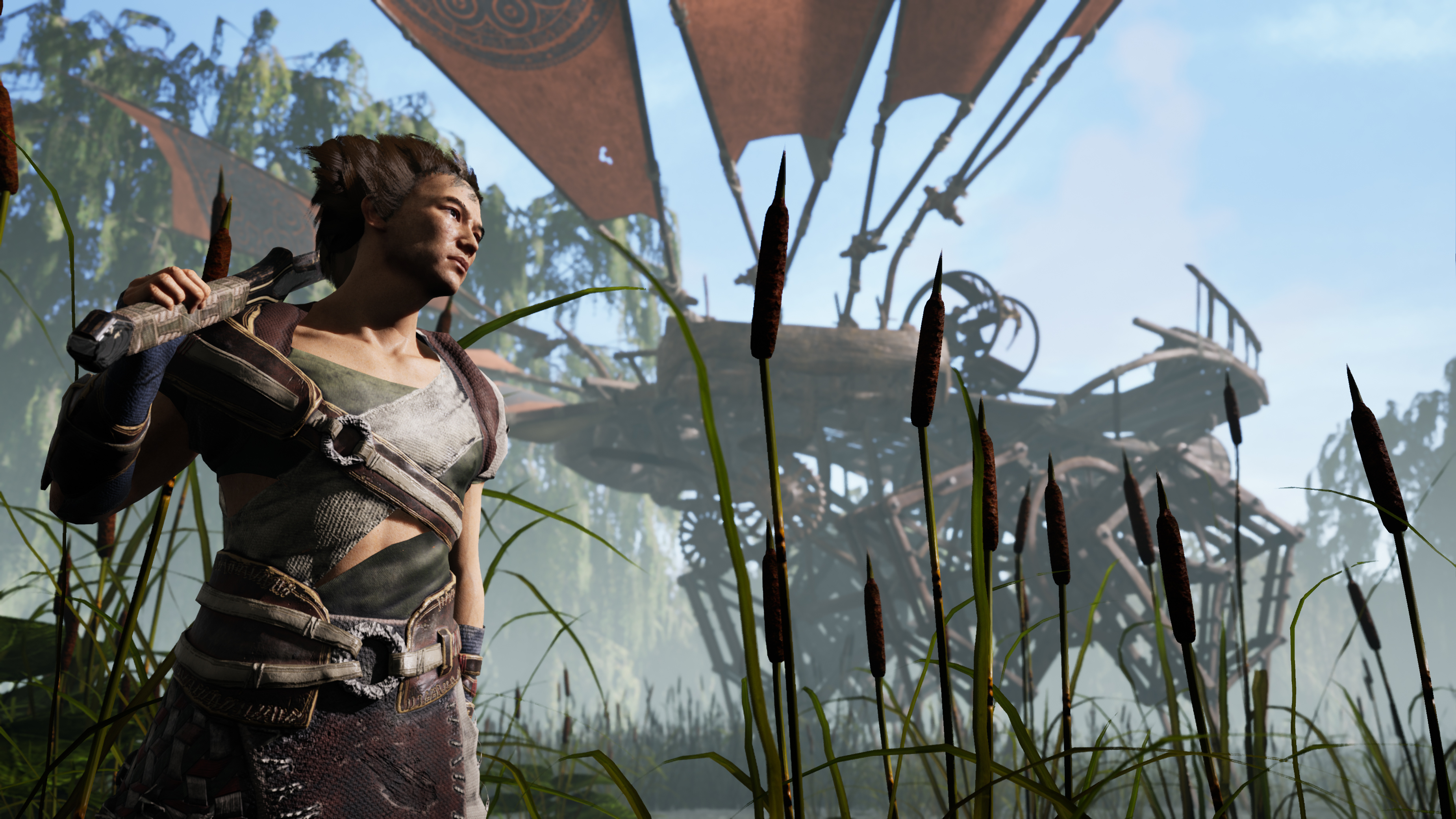Developer of survival MMO Last Oasis explains why they're launching a new early access survival game before they finish their last one: 'It was either that or shutting down'
Last Oasis and Bellwright project lead Florian Hofreither says the choices were "fire 90% of my studio, or we start a new game."

Survival MMO Last Oasis has had a bumpy ride in early access. Launched in 2020, the nomadic MMO where players construct massive walking bases to travel across a dying planet instantly became a Steam top seller—but it had so many server problems its developer, Donkey Crew, had to take it offline for a week.
That was the first of several speed bumps for Last Oasis, as over the years the player count dropped, review scores dipped, and the player base became divided between those who wanted a brutal PvP experience and others who wished the MMO was more PvE-focused. Updates and seasonal content were released, but at times the studio would fall silent for as long as a year, frustrating fans.
Today Last Oasis is still in early access with no 1.0 version in sight, but last year Donkey Crew announced it was developing a new early access open world survival game: medieval village-building RPG Bellwright. This announcement doesn't sit well with some Last Oasis players, who wonder: why is Donkey Crew making another early access survival game when their first one isn't finished yet?
"The reality is, it was either that or shutting down," Last Oasis and Bellwright project lead Florian Hofreither told me last week at the Game Developers Conference in San Francisco.
"Last Oasis sold initially okay," Hofreither said, "but after a while, with the reviews going down and playerbase going down, it made no money anymore. So the three options were fire 90% of my studio, or we start a new game, which then has the hopes of bringing in further money. Or, we just shut everything down."
[Players] wish we would just continue Last Oasis. But that was simply not an option.
Florian Hofreither, project lead
Hofreither said that launching a new game was clearly the best choice for him and his studio—but he also thinks it's the way forward for Last Oasis. Provided Bellwright is successful in early access, Hofreither said "we hope to resume development" on Last Oasis, at least eventually.
"I understand why players are angry," he said. "They wish we would just continue Last Oasis. But that was simply not an option," he said. "At some point, someone has to pay the bill. It just didn't bring in the money anymore, so it was shut down or do something new."
The biggest gaming news, reviews and hardware deals
Keep up to date with the most important stories and the best deals, as picked by the PC Gamer team.
Currently Last Oasis has "Mixed" reviews on Steam, and back in 2022, Hofreither criticized the game himself. In a post on Steam titled "Last Oasis sucks," he wrote: "I’m not having fun for long when playing it. Not as long as other survival games I enjoy," and announced plans to rethink and rebuild elements of the MMO.
I asked him if the changes made in 2022 had turned things around in his eyes, and made the game more fun for him to play.
The community is so extremely split in all directions
Florian Hofreither
"No," he said after a few moments of consideration. "I wouldn't say that I have fun with Last Oasis now. If you ask me if I'm proud of Last Oasis, I would say no. I'm proud [of what we achieved], but I'm not proud of the state that it is currently [in]."
One of the thorniest issues, Hofreither said, has been trying to please both types of Last Oasis players, the PvE fans and the PvP fans. "The community is so extremely split in all directions," Hofreither said. "The only thing they agree on is that we are not doing what they want us to do. It is a very tough situation to be in, and honestly Bellwright is singleplayer for that very reason."
While the Donkey Crew team is focused on its new game and the development of Last Oasis is on hold until Bellwright (which will also support co-op) launches, there's still something to look forward to for those who own the MMO. Mod support is coming "very soon" to Last Oasis. New official content like maps and features may be uncertain, but at least modders will be able to make their own in the meantime.

Chris started playing PC games in the 1980s, started writing about them in the early 2000s, and (finally) started getting paid to write about them in the late 2000s. Following a few years as a regular freelancer, PC Gamer hired him in 2014, probably so he'd stop emailing them asking for more work. Chris has a love-hate relationship with survival games and an unhealthy fascination with the inner lives of NPCs. He's also a fan of offbeat simulation games, mods, and ignoring storylines in RPGs so he can make up his own.

